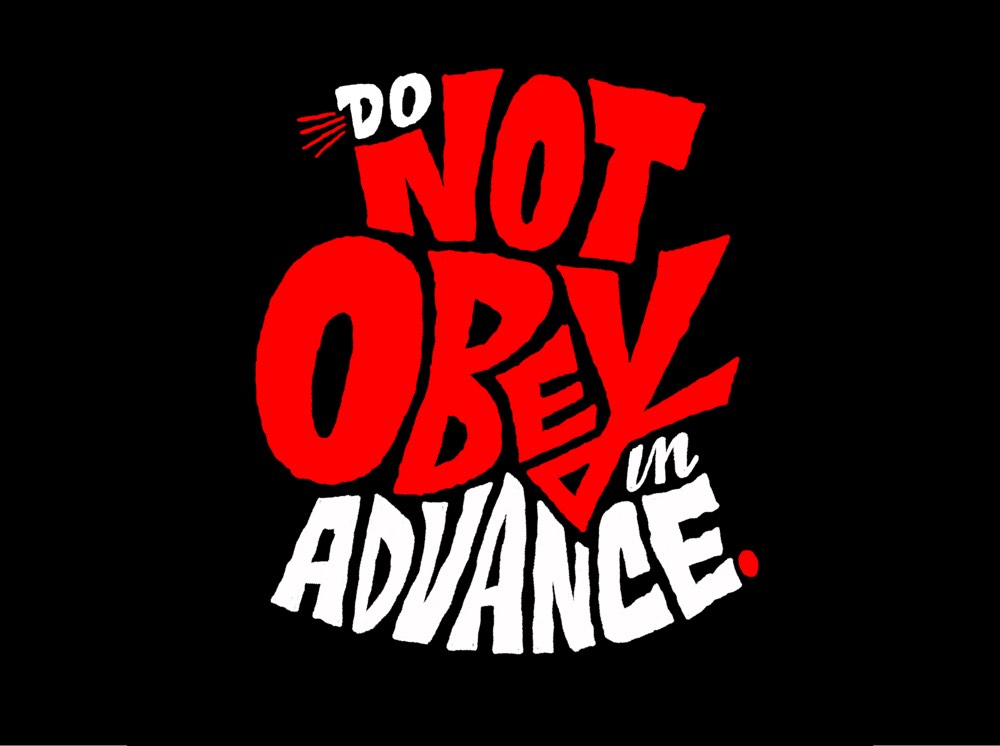
“How to be a better parent” is discussed endlessly on the internet. But what we don’t see enough of is research-backed advice that can make your kids both more ethical and more successful.
And I don’t mean “gets good grades” successful. I mean kids who go on to make a name for themselves with breakthroughs that help improve the world for everyone.
Adam Grant is the youngest tenured professor at the Wharton School at the University of Pennsylvania and author of the New York Times bestseller, Give and Take: Why Helping Others Drives Our Success.
His awesome new book is Originals: How Non-Conformists Move the World and not only does it give tips on how all of us can be more successful but it has research-backed solutions for how to be a better parent.
Want to raise kids that are movers and shakers as well as ethical citizens? I gave Adam a call to find out what you and I need to know…
1) Ask Kids, “What Would Harry Potter Do?”
As a parent, you want to be a good role model. But what Adam found was that while parents are important role models in terms of morals, they may not be the best when it comes to career if you want your kids to really soar. Here’s Adam:
Parents are great role models when it comes to important values. They’re not great role models if you want to be original because it’s very easy that you end up copying one of your parents.
So where do the best career role models comes from? Oddly enough, it might be fiction.
From Originals: How Non-Conformists Move the World:
Growing up, many originals find their first role models in their most beloved novels, where protagonists exercise their creativity in pursuit of unique accomplishments. Elon Musk and Peter Thiel each chose Lord of the Rings, the epic tale of a hobbit’s adventures to destroy a dangerous ring of power. Sheryl Sandberg and Jeff Bezos both favored A Wrinkle in Time, in which a young girl learns to bend the laws of physics and travel through time. Mark Zuckerberg was partial to Ender’s Game, where it’s up to a group of kids to save the planet from an alien attack.
Kids who go on to mold the future of the world we live in need to see past the day to day and dream of what might be possible. Here’s Adam:
As I read this research about how children’s stories could actually predict innovation, I started to think maybe there’s something to this. I think that we really underestimate the importance of these stories. Sometimes fiction is better for sparking the imagination than reality is. If you want to create something that doesn’t exist, why not go to a source that’s trying to dream that something up?
This strategy of leveraging a child’s favorite fictional character can even get kids to eat better. Brian Wansink of Cornell found that asking children, “What would Batman eat?” got kids to pick apple slices over french fries. Here’s Brian:
We found we could get kids to choose the healthier food much more often if we simply asked what their favorite superhero or their favorite princess would do. Even if they responded “french fries”, half the time they took the apple slices. It simply causes an interruption in their thinking that causes them to pause, hit the reset button inside their head and think again.
Research shows that thinking about fictional characters you love can help you make better decisions. In fact, thinking about superheroes can even make you physically stronger.
(To learn the 4 new parenting tips that will make your kids awesome, click here.)
Okay, so you’ve got wizards and Batman on your side now. But how many rules should you set for your kids? The right answer just might be “zero”…
2) Emphasize Values Over Rules
Research shows that most families have an average of six rules for children. But what about the families of kids who scored as highly creative?
Their families averaged less than one rule. Here’s Adam:
Children who scored in the top 5% in creativity tended to come from households with, on average, less than one rule. The families of kids who were less creative typically had six rules.
Kids need rules but making things so concrete might encourage them to be little lawyers who look for loopholes. By emphasizing values over rules, it starts a good conversation about right and wrong.
This way, children internalize ethics and are more likely to do the right thing because they generate rules for themselves. Here’s Adam:
You need to have some boundaries for kids. They can’t be allowed to do whatever they want, but in these families that mention creativity, the emphasis was not on, “This is what you do because I say so,” it was, “These are principles that we believe in and here’s why we think they’re important. What do you think? Let’s have a discussion about that.” There was reflective dialogue going on. Because of that, kids took ownership of the values and essentially made some of the very rules that the less creative parents were busy trying to enforce. Instead of enforcing them, these few parents got their creative children to endorse the rules themselves because they helped to generate them.
(To learn the #1 mistake parents make when arguing with kids, click here.)
Okay, we’ve tossed the rules and we’re focused on values. Awesome. Now what’s the right way to praise good behavior? Sorry, that’s another trick question. Don’t praise good behavior at all…
3) Praise Character, Not Actions
Next time your kid does something kind, don’t tell them, “What you did was nice.” Nope. What should you tell them?
“You’re a really nice person.”
Don’t praise the action, praise their character. When they see good behavior as part of their identity, they’re more likely to make good choices in the future. Here’s Adam:
There’s a bunch of evidence suggesting that it can be more powerful to praise the person rather than the behavior. Instead of saying, “Wow, that was really nice,” you say, “Wow, you are a really nice person.” What that does is it helps them internalize that behavior as part of their identity so that the next time they have a chance to consider, “Do I want to share or help?”, they think, “That’s who I am.” You can do this on the negative side too. If you want to make sure that your kids have integrity, instead of saying, “Don’t cheat,” you should say, “Don’t be a cheater,” and you can literally cut cheating in half.
What happens when you ask kids “to be helpers” instead of “to help”? They’re up to 29% more likely to clean up after themselves.
From Originals: How Non-Conformists Move the World:
In an ingenious series of experiments led by psychologist Christopher Bryan, children between ages three and six were 22 percent to 29 percent more likely to clean up blocks, toys, and crayons when they were asked to be helpers instead of to help.
(To learn the science of raising happy kids, click here.)
Alright, no praising good behavior. How do you correct bad behavior? Turns out the best way to punish might be to explain…
4) Explain How Bad Behavior Affects Others
During World War 2, there were non-Jews who put their lives on the line to save Jews from the Holocaust. What did these rescuers have in common?
They were more than three times as likely to have had parents who focused less on punishment and more on explaining how bad behavior affected others.
This emphasis on explanation is also disproportionately seen in both kids who don’t commit crimes and children that go on to make a difference in their chosen field. Here’s Adam:
When you punish kids for bad behaviors, if you just stop there, then there’s a big risk that they don’t understand why the behavior was wrong. What parents who do a really good job teaching moral values do is they explain, “This is how your behavior hurt others. Think about what kind of pain this child was in when you hit him.”
What’s the secret sauce here? Two ingredients: it helps kids develop both empathy and guilt. Here’s Adam:
When you emphasize consequences for others, that tends to make children feel two things: Empathy and guilt, which I think are the king and queen of moral emotions. Empathy makes you want to right the wrong that you’ve done and help so that the destructive suffering goes away. Guilt has this anticipation effect where it feels really bad to have this remorse over, “Gosh, I did something wrong,” and next time you’re in that situation, you want to make sure you don’t do that again.
Plenty of research backs Adam up. Studies show guilt works. And people who feel guilt are better leaders and better friends. Adam quotes Erma Bombeck who said:
Guilt is the gift that keeps on giving.
(To learn how to have a happy family, click here.)
Let’s round up all these great ideas from Adam and learn the secret to dealing with the flood of parenting advice that makes raising successful kids such a challenge…
Sum Up
Here’s what Adam had to say about how to be a better parent:
-
Ask kids, “What would Harry Potter do?” Little wizards can be a big help in getting kids to do the right thing.
-
Emphasize values over rules. Get values right and they’ll build the rules themselves.
-
Praise character, not actions. Don’t make good choices seem like one-time things. Help them craft a positive identity.
-
Explain how bad behavior affects others. Empathy and guilt will forge them into awesome adults.
There’s an overwhelming amount of parenting advice out there. But Adam has some reassuring thoughts for everyone who wants to raise an ethical child that goes on to make a difference in the world. Here’s Adam:
Parenting is one of the domains in our lives where bad is really stronger than good. It is far, far easier to extinguish the creative spark of a child than it is to light that spark. The good news about that is, kids are born with that spark. They have a natural urge to ask questions, to create, to explore. At the end of the day, all you really need to do as a parent is not get in the way of that. I’ve become less hard on myself through this process, knowing that, “Don’t screw it up,” is probably better advice than, “Here are all the steps you need to take in order to be a parent who nurtures original thinking.”
You don’t need to struggle to memorize a thousand pieces of advice when it comes to instilling that creative spark in a young mind. It’s more important to make sure you’re not extinguishing that flame.
The spark is already there. Just nurture it, support it and give it love.
Join over 240,000 readers. Get a free weekly update via email here.
Related posts:
How To Get People To Like You: 7 Ways From An FBI Behavior Expert
New Neuroscience Reveals 4 Rituals That Will Make You Happy
New Harvard Research Reveals A Fun Way To Be More Successful
The post How To Be A Better Parent: 4 Secrets Backed By Research appeared first on Barking Up The Wrong Tree.



